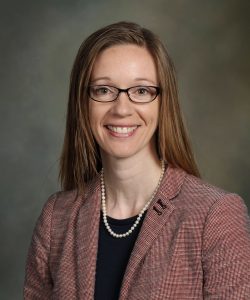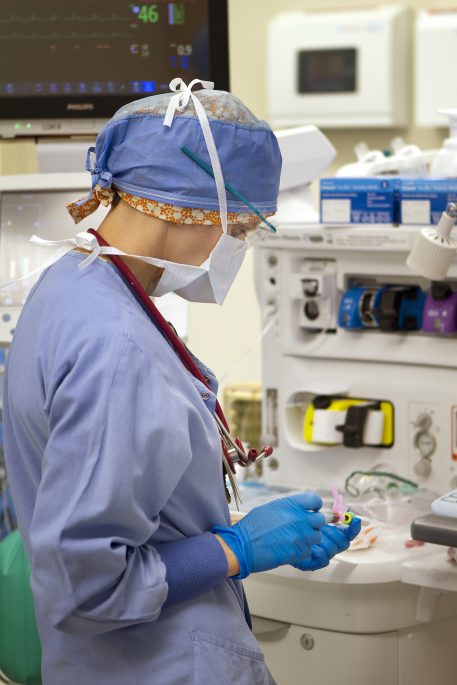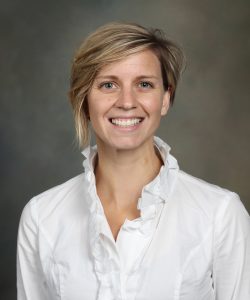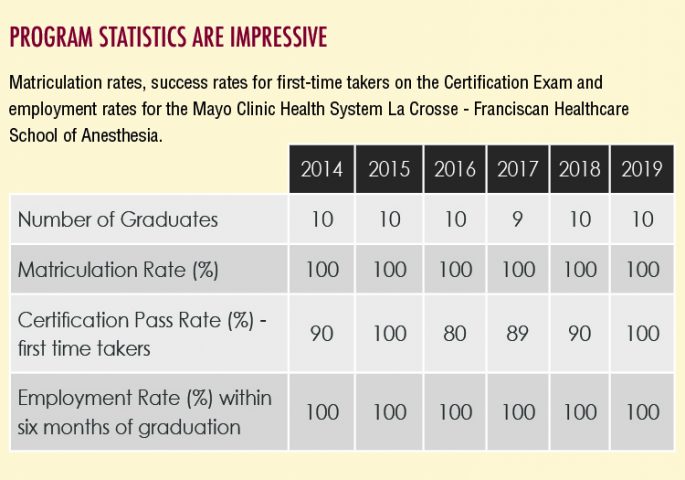Posted p.m. Sunday, Dec. 22, 2019

CSH partnership with School of Anesthesia prepares nurses for critical profession on healthcare teams.
CSH partnership with School of Anesthesia prepares nurses for critical profession on healthcare teams
A gallbladder removal. An epidural insertion. A joint replacement.
A day in the life of a nurse anesthetist is diverse and busy as they meet the needs of many patients undergoing surgery and other medical procedures. But these healthcare professionals have one constant goal as they approach every bedside — helping the patient feel relaxed and comfortable.
La Crosse area hospitals saw a need for trained anesthetists back in 1942 and a local nurse and sister with the Franciscan Sisters of Perpetual Adoration stepped up to run a certificate program. Sister Yvonne Jenn started what eventually became the first anesthesia school in Wisconsin.
Today that school has blossomed into a successful local partnership between Mayo Clinic Health System La Crosse - Franciscan Healthcare School of Anesthesia, UW-La Crosse College of Science and Health, and Viterbo University School of Nursing. The school also partners with several area hospitals to offer a variety of clinical rotations for students.
Unique partnership meets demand for anesthetists
The program admits a maximum of 12 students a year — all registered nurses looking to advance in their careers. They are prepared through academic and clinical training to become Certified Registered Nurse Anesthetists (CRNA). These highly-trained nurses fill an in-demand need on healthcare teams — 100% of the school’s graduates in the last five years were employed within six months of graduation.

The school allows each partner — Mayo, UWL and Viterbo — to excel in its strength, explains Jessica Peterson, the school’s program director and an alum.
UWL’s graduate program in biology provides students a strong educational foundation in how the human body functions at the cellular level through core courses in areas such as anatomy, physiology, chemistry, electrocardiography and endocrinology.
“Our school would not be the same caliber without UWL and Viterbo — we wouldn’t be able to fill that void of the curriculum,” explains Peterson.
UWL became a partner of the school under Barb Jochman, who directed the school from 1985-2016. Jochman, who was also a 1980 alumni of the school, recalls working with wonderful UWL faculty and university leadership to make the partnership a reality, which allowed the school to meet its accreditation standard of students being prepared with a master’s degree. “After that affiliation, the program obviously became stronger,” recalls Jochman. “We became a very solid program.”
In 2018, the program established an affiliation with Viterbo University and their organization provides a strong foundation in ethics, epidemiology, healthcare policy, and quality improvement.
Real-world setting of school is key

But the coursework is only part of the picture. Students can continually see what they are learning in classes in the real-world setting as the school is based at the Advanced Medicine and Surgery Center at Mayo Clinic Health System La Crosse. The program stands out from others because the school is so intimately tied to the hospital, says Peterson.
“Our students are part of our department and we work together when we take care of patients,” says Peterson.
For instance, in their academic coursework, students learn about how neurons in the brain connect with certain muscle groups. Then, in the clinical setting, trained CRNAs and healthcare providers can guide students in a discussion of the techniques and medications used to block those nerves as they help meet a real patient’s specific needs.
All the CRNAs and Anesthesiologists at Mayo Clinic Health System La Crosse are instructors to the students in the clinical setting. Anesthesiologists and CRNAs also contribute to their education by lecturing about monitoring devices, preoperative assessment, pediatric patients, anesthesia during labor and delivery of obstetrical patients, cardiac anesthesia, and ethics.

CRNA Heidi Inabnit, a 2016 graduate of the school, says the program prepared her well by providing a good combination of the academic coursework and clinical experience.
Inabnit is happy to be part of the great team of CRNAs at the Mayo Clinic Health System La Crosse — many who are also graduates of the school.
“Every patient is unique. Cases are variable. What remains the same is the diligent care we provide regardless of a 15 minute or five-hour case,” says Inabnit. “We are the patient’s advocate for safety and comfort, constantly adjusting our anesthetic.”
Peterson, who is also an alum of the school, moved to La Crosse for the program. She graduated in 2009 and went on to become a local CRNA, until eventually transitioning into the assistant director of the program and then director. She enjoys the student interactions and says the student involvement makes the team stronger.
“It is incredibly rewarding not only to see student success, but the impact it has on our department and patients,” says Peterson.

About the school
At the Mayo Clinic Health System La Crosse - Franciscan Healthcare School of Anesthesia, students are taught in a didactic and clinical setting during the course, which requires 36 months of consecutive study. After successful completion of the program, students will have earned:
• A Master’s of Science in biology from UWL (33 credits)
• Certificate of Completion from the School of Anesthesia (26 credits)
• A Doctor of Nursing Practice from Viterbo University (22 credits)
How to apply
Applications for the program are accepted from July 1 through Sept. 1.
Learn more.
